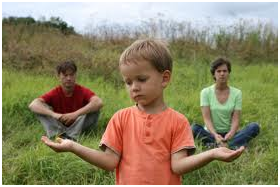Ten of thousands of children are faced with the challenges of a parental divorce each year.This can lead to a significant emotional burden for the child as he or she struggles with feelings of hurt, guilt, confusion, and uncertainty about the future. It is most important for parents to create a nurturing and supportive environment which fosters open communication about feelings.This allows children to become armed with the skills necessary to cope with this stressful situation, but also creates a strong foundation to better deal with future stressors as well!
Key Factors to aid in children’s healing after a divorce:
Open Communication
Communicate information in an age appropriate way and encourage children to express their emotional reaction. Reading books or watching a cartoon that involves the topic of divorce may “normalize” the child’s feelings and help to create a more open dialogue.The child needs to feel accepted, safe, and free from blame. If you are finding that your child is reluctant to share feelings with parents, find a support group, arrange play dates with other children in a similar situation, or engage a counselor.
Confine negativity:
Children need to be protected from parental conflict, or discussions regarding finances, visitation, and blame.
Minimize disruptions:
Try to maintain as similar a daily routine as possible. Children need consistency and structure as this helps to decrease anxiety about the future. If there is to be a significant change in routine, be open about expectations. It is also important for parents to be as flexible as possible when children voice their needs.
Maintain Authority:
Previously established household rules and expectations for children’s behavior should not change amidst the grief over the divorce. Parents can comfort children through their sadness and anger, but should emphasize appropriate ways to express these feelings rather than permitting negative expression. Additionally, parents should grieve their own reaction to the loss as privately as possible. Children need to be children and not carry the burden of their parents’ emotional reaction.
Books for children about divorce:
Dinosaurs Divorce (A Book for Changing Families) by Marc Brown
I Don’t Want to Talk About It by Jeanie Franz Ransom
Two Homes by Claire Masurel
Please know if you feel like your child/children could benefit from additional support, the staff at Crossroads Family Counseling are here for you!
Wishing you all a Happy Spring!!!
